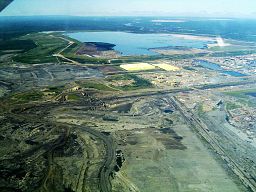Fracking and Canada’s Oil Sands

The fundamental issue, however, for the oil sands is not the pipeline policy of BC, but rather the underlying economics. The fracking revolution has remade the finances of oil. It’s true that Canada remains the top oil exporter to the United States. Still, the financial value of its exports fell 47.5% between 2016 and 2017 (this is the dollar value, not the number of barrels shipped). Indeed, the drops in the value of petroleum sales were even larger for other major oil suppliers to the United States. Venezuela, the third largest oil exporter to the United States, saw it’s sales fall a staggering 71.8% during the same period, while Mexico’s fell 79.3%, according the website “worldstopexports.” The truth is that focusing on pipelines to the Pacific is rather like improving buggies to compete with Ford as the auto industry developed, which no less true for being a meme.
The Tyee is an online newspaper with good coverage of West Coast politics and society in Canada from a left-wing perspective. Mitchell Anderson has a wonderful article titled “Only Fantasies, Desperation and Wishful Thinking Keep Pipeline Plans Alive.” While Anderson’s article reflects the paper’s ideological leanings, the overall analysis shows the folly of trying to rely on this resource, at a time that global energy markets are undergoing a massive change, and coastal regions are trying to plan for sea level rise. With the rise of electric cars, the falling costs of utility scale batteries, and the growth of fracking, the energy landscape has change dramatically from 2003. No ban on BC wine is going to undo the dramatic changes in U.S. oil demand, and the United States will remain Canada’s main energy market internationally. While Albertans must rethink and diversify, they are only one player amongst many, which are struggling to adapt to new global realities.




